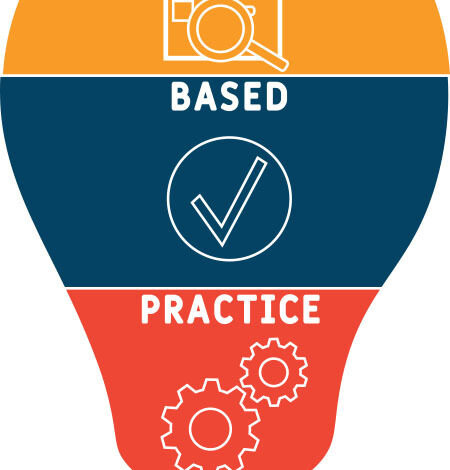
An Electronic Road Trip: Visiting Evidence-Based Practice Resources, Part 1
INTRODUCTION
There are some excellent repositories of knowledge dedicated to evidence-based initiatives available. I could write a series of articles on this topic alone. (I think I will…)
As the topic of this issue is Reducing Readmissions, I decided to start my keyboard journey at the originator of the Hospital Readmission Reduction Program, the Centers for Medicare & Medicaid Services.
I found an excellent resource, CMS Quality Net, which can be accessed via www.qualitynet.cms.gov/inpatient/measures/readmissions.reducing-readmissions. This portal leads to a listing with live links to varied resource databases, such as the Centers for Medicare & Medicaid Services Quality Improvement Organization-Quality Improvement Network (QIO-QIN), Agency for Healthcare Research and Quality (AHRQ) Innovations Exchange and the National Priorities Partnership (NPP). Let’s take a look at each of these to give you a glimpse into the resources available to you. (Please note that this is just the start of a journey and there are so many other resources available. One leads to another.)
QIO-QIN
The Centers for Medicare & Medicaid Services Quality Improvement Organization (QIO), “one of the largest federal programs dedicated to improving health quality for Medicare beneficiaries, is an integral part of the U.S. Department of Health and Human (HHS) Services’ National Quality Strategy for providing better care and better health at lower cost” (Quality Improvement Organizations, 2020). A separate arm within the QIO is the Quality Innovation Network (QIO-QIN), which brings Medicare beneficiaries, providers and communities together in data-driven initiatives that increase patient safety, make communities healthier, better coordinate post-hospital care and improve clinical quality. Having worked with the QIO-QIN in the Chicago area for many years, I can tell you it is a seriously underutilized resource As the QIO-QIN’s 11th Scope of Work summary reports, the QIO-QIN recruited 294 communities and a total of 3,745 outpatient healthcare settings. Through their collaborative work, the QIO-QIN estimates that more than 24,000 Medicare readmissions were avoided through 276 successful quality improvement initiatives and more than 1,500 instances of technical assistance were given (Quality Improvement Organizations, 2020). Connect with your local QIO-QIN organization for some real “boots on the ground” interaction and support.
AGENCY FOR HEALTHCARE RESEARCH AND QUALITY (AHRQ) INNOVATIONS EXCHANGE
A personal favorite starting site for me, the AHRQ site, is chock full of EBP on a variety of topics. I often joke that one should pack a lunch and stay the day! The Hospital Readmissions landing page on the AHRQ site contains links to vetted tools, data and research to help hospitals reduce preventable readmissions. It includes tools from the Project RED (Re-engineered Discharge) toolkit, Project BOOST bundle as well as the patient-facing “Taking Care of Myself: A Guide for When I Leave the Hospital” and the comprehensive “Designing and Delivering Whole-Person Transitional Care,” which provides evidence-based strategies that can be adapted to a hospital setting.
The AHRQ site also hosts the Nationwide Readmissions Database, developed as part of the Healthcare Cost and Utilization Project (HCUP). This database is one of the largest (35 million discharges) single sources of readmissions data across the nation, representing hospital readmission data for all payers, uninsured populations and across all demographics.
The HCUP home site is also hosted here, along with the Health IT projects database (projects that leverage technology to reduce readmissions), as is the Patient Safety Organization (PSO) site. Created in 2005, under the Patient Safety and Quality Improvement Act, the PSO was developed to collect voluntarily reported quality and patient safety data from individual providers and healthcare organizations with a goal of learning and creating solutions to patient safety concerns.
In 2019, over one-half of acute care facilities were working with PSOs, and 80% of those reported that the feedback and analysis on patient safety events they received have helped to prevent similar future events.
Eight patient safety activities are carried out by or on behalf of a PSO or a healthcare provider:
- Efforts to improve patient safety and the quality of healthcare delivery
- The collection and analysis of patient safety work product (PSWP)
- The development and dissemination of information regarding patient safety, such as recommendations, protocols or information regarding best practices
- The utilization of PSWP for the purposes of encouraging a culture of safety as well as providing feedback and assistance to effectively minimize patient risk
- The maintenance of procedures to preserve confidentiality with respect to PSWP
- The provision of appropriate security measures with respect to PSWP
- The utilization of qualified staff
- Activities related to the operation of a patient safety evaluation system and to the provision of feedback to participants in a patient safety evaluation system (AHRQ, 2022).
NATIONAL QUALITY FORUM (NQF)/NATIONAL PRIORITIES PARTNERSHIP (NPP)
The big news this week is that our own Rebecca Perez, MSN, RN, CCM, has been selected to the NQF Leadership Consortium, joining 34 other healthcare experts. Case management with a seat at the NQF table! Congratulations to Becky!
Why is this such a momentous appointment? The National Quality Forum (NQF) was created in 1999 by a public/private coalition after the President’s Advisory Commission on Consumer Protection and Quality in the Healthcare Industry concluded that an organization was needed to promote and protect patients and healthcare quality through measurement and public reporting. NQF validates measures and practices as the “best practices” or “evidence-based” evaluated under rigorous criteria prior to being endorsed for use within the wider healthcare community. A seat at that table raises the voice of professional case management practice that much higher.
In keeping with the theme for the day, readmissions: under the All-Cause Admissions and Readmissions Committee of the NQF, the data and reports on avoidable readmissions available give a robust view into the work spanning more than 15 years, including readmissions measures, data on discharge destination, use of post-acute resources, emergency department use within the first 30 days of home health service, follow-up care participation and impact of social determinants of health on readmissions. If readmission reduction is your passion project, this is a great place to start your journey!
YOUR ACTION
There is so much valuable information out there! Take some time, visit a site (bring a lunch!) and get inspired! In our next issue, look for a review of PCORI, NTOCC and the Commonwealth Fund for evidence-based practices related to that issue’s topic. Remember, there is more than readmissions at these reviewed sites and more readmissions information on other sites as well. Tools for your toolbox are just the tip of the iceberg! What are you doing around readmission reduction?
REFERENCES
Agency for Healthcare Research and Quality (2022). Patient Safety Organizations. https://pso.ahrq.gov/faq.
Agency for Healthcare Research and Quality (2022). Hospital Readmissions. https://www.ahrq.gov.
Center for Medicare and Medicaid Services (2022). Quality Net. www.qualitynet.cms.gov.
CMS Special Session Quality Improvement Organization QIO 12th Scope of Work. CMS Special Session Quality Improvement Organization QIO 12th scope of work. (2020). Retrieved June 18, 2022, from https://qioprogram.org/resources/content/cms-special-session-quality-improvement-organization-qio-12th-scope-work.
National Priorities Partnership. NQF: National Priorities Partnership. (2021). Retrieved June 18, 2022, from https://www.qualityforum.org/Show_Content.aspx?id=59894.





